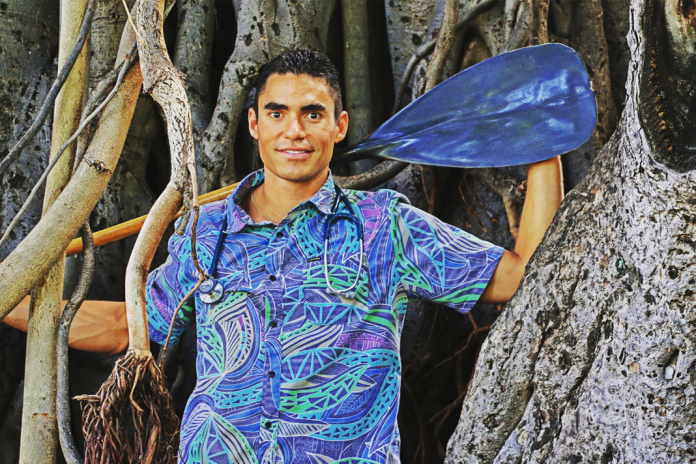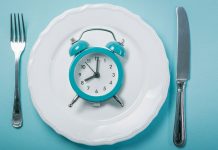In endurance ocean sport s where food is fuel, we often forget that eating well should play a more primary role over supplements, sports drinks, gels and bars. Nutrition is not only foundational to optimal health, but as endurance machines, it should be no surprise that what you put in your body plays a critical role in sports performance. To help sort through the dietary confusion, I will touch on some of key basics in endurance nutrition. Dial in Your Macros
Your two primary dietary fuel sources for energy production come from carbohydrates and fat. Protein provides the building blocks for muscle repair and is only used as a fuel source when fat and carbo-hydrates stores have run dry. All macronutrients are important and need to be properly balanced for prolonged fitness.
There are many different schools of thought and opinion on which diet reigns supreme for endurance athletes. From vegetarian/vegan to paleo to the newer emerging trend of ketogenic, there is a wide spectrum of variability when it comes to choosing the ideal macronutrient breakdown for maximal individual performance. Because current research does not provide much consensus, I generally recommend dietary experimentation when out of competition to dial in what diet fuels you to your best performance.
Eat a Quality Diet Consistently
Fueling for an endurance event begins well before race day and is centered on having high quality nutrition being a pillar of daily dietary intake. An important concept to understand is “area under the curve” which emphasizes health outcomes as a result of lifestyle behaviors performed consistently over months to years. Similar to endurance sports, to be race ready requires disciplined effort and put-ting in the time/miles. Consistently meeting the core tenants of a nutritious diet daily such as 5-8 servings of varied colored non-starchy vegetables, 1-3 servings of low glycemic-index fruit, lean protein and healthy fat will have you well on your way to improved fitness and health.
Caloric Intake
Higher intensity and longer workouts will increase an athlete’s caloric demand. Signs of caloric deficit may include experiencing a lack of pleasure during workouts, dropping off in performance midway through an endurance bout, thinking about food constantly and excessive hunger in the evening. Many endurance athletes, despite fueling their workouts properly during training, finish the day with a caloric deficit. Miscalculations in caloric intake to sustain energy production can result in either overloading or undersupplying dietary needs which will compromise performance and impact body composition. Daily caloric needs can range wildly in endurance athletes from 2,000-5,000+ calories depending on age, gender, body composi-tion, daily activities and training regimen. Finding the right balance in daily calories will result in quicker recovery and consistent performance.
Meal timing
Have you ever attempted a high intensity or long workout after a big meal? Then you know that meals eaten at the wrong time can do your training and performance more harm than good. Pre-activ-ity meals should be consumed 1-3 hours before a workout and should consist of a smaller meal with carbs and protein. Fats and fiber are more slowly metabolized in the body which make less than ideal food sources before a training session or race.
For short or high-intensity workouts under 90 min-utes, athletes can benefit from teaching the body to rely on fat and carbohydrates stores for energy, which requires little to no fueling during exercise. For bouts of exercise lasting more than 90 minutes, like most endurance events, caloric replenishment is essential for sustained effort. Gels, sports drinks and energy bars are convenient sources for fueling this effort.
What you eat after a workout matters just as much. The 30 to 60 minutes immediately following long and high-intensity workouts are especially important. Consuming 1 gram of carbohydrate per kilogram of body weight (80g in a 175 pound individual) helps to replenish energy stores and 10 to 25 grams of protein provides the necessary building blocks for muscle repair after a workout. Fat, which inhibits carbohydrate absorption, should wait until a few hours later.
Hydration
Fatigue, nausea, cracked lips, dry throat, headaches, poor concentration, muscle cramping and a decline in performance can all be signs of dehydration. Hydration for endurance athletes is about achieving the right balance of fluids and electrolytes.
How much you need to drink varies greatly be-tween individuals based on size, sweat rate, activity levels, and weather. A great strategy to prevent dehydration is to consume fluids at regular intervals such as every 15-20 minutes even if not thirsty while alternating plain water with a sports drink. Between 500-750 mL (about 17-25 fluid ounces) per hour will fulfill most athletes hydration requirements under most conditions.
If you don’t drink enough, you’ll suffer from performance-ruining dehydration. Drink too much, however, and you’ll not only end up with impaired athletic performance, you may even be flirting with potentially life threatening water intoxication, a condition where sodium levels in the blood become too diluted due to improperly balanced electrolyte intake.
Dr. Opunui is naturopathic doctor at Manakai O Malama, Hawaii’s largest integrative medicine clinic. Naturopathic medicine is a form of medicine that works with nature to restore health. Dr. Opunui takes all major private health insurance plans and on July 1st, 2016 became the first naturopathic doc-tor to become credentialed by HMSA as a participating provider. Dr. Opunui is an ocean enthusiast, outrigger paddler, Ironman triathlete and proud Native Hawaiian with the passion of empowering









